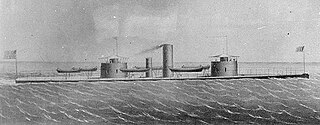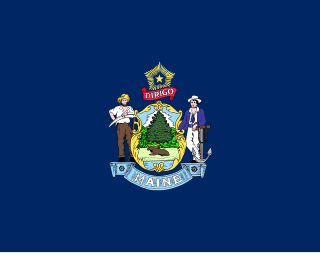| William Dunn | |
|---|---|
 | |
| Born | April 28, 1834 Lisbon, Maine |
| Died | March 18, 1902 (aged 67) West Bowdoin, Maine |
| Place of burial | West Bowdoin Cemetery, Maine |
| Allegiance | United States of America Union |
| Service/ | United States Navy Union Navy |
| Rank | Quartermaster |
| Unit | USS Monadnock (1863) |
| Battles/wars | American Civil War • Second Battle of Fort Fisher |
| Awards | Medal of Honor |
William Dunn (April 28, 1834 – March 18, 1902) was a sailor in the U.S. Navy during the American Civil War. He received the Medal of Honor for his actions during the Second Battle of Fort Fisher on January 15, 1865.

The American Civil War was a civil war fought in the United States from 1861 to 1865, between the North and the South. The most studied and written about episode in U.S. history, the Civil War began primarily as a result of the long-standing controversy over the enslavement of black people. War broke out in April 1861 when secessionist forces attacked Fort Sumter in South Carolina shortly after Abraham Lincoln had been inaugurated as the President of the United States. The loyalists of the Union in the North proclaimed support for the Constitution. They faced secessionists of the Confederate States in the South, who advocated for states' rights to uphold slavery.

The Medal of Honor is the United States of America's highest and most prestigious personal military decoration that may be awarded to recognize U.S. military service members who have distinguished themselves by acts of valor. The medal is normally awarded by the President of the United States in the name of the U.S. Congress. Because the medal is presented "in the name of Congress", it is often referred to informally as the "Congressional Medal of Honor". However, the official name of the current award is "Medal of Honor." Within the United States Code the medal is referred to as the "Medal of Honor", and less frequently as "Congressional Medal of Honor". U.S. awards, including the Medal of Honor, do not have post-nominal titles, and while there is no official abbreviation, the most common abbreviations are "MOH" and "MH".

The Second Battle of Fort Fisher was a successful assault by the Union Army, Navy and Marine Corps against Fort Fisher, south of Wilmington, North Carolina, near the end of the American Civil War in January 1865. Sometimes referred to as the "Gibraltar of the South" and the last major coastal stronghold of the Confederacy, Fort Fisher had tremendous strategic value during the war, providing a port for blockade runners supplying the Army of Northern Virginia.





